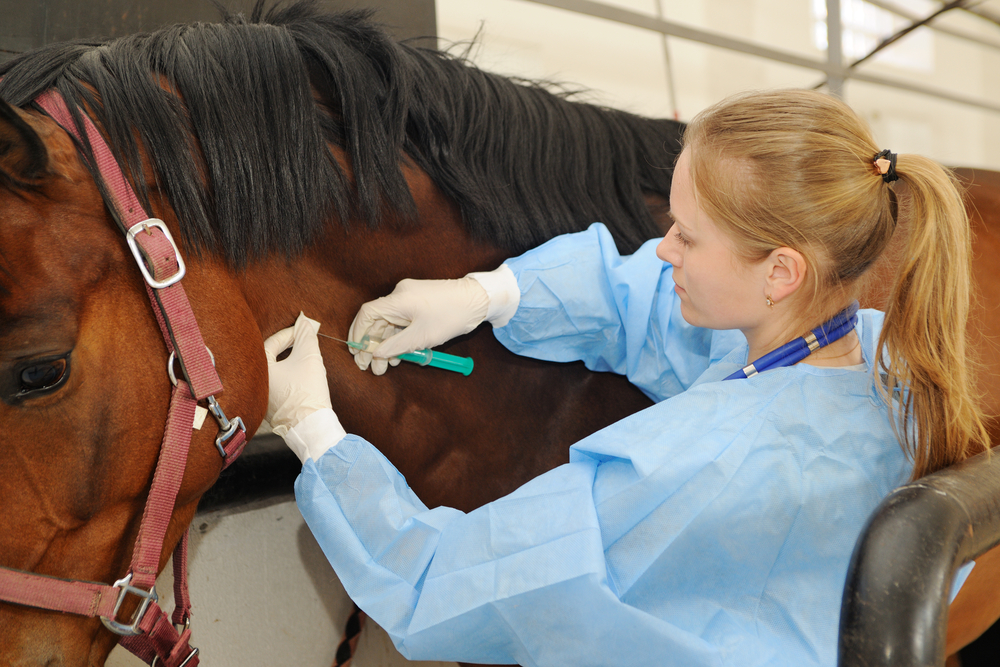Caring for your horse’s dental health is an essential part of maintaining their overall well-being. A consistent horse dental care routine helps in preventing various oral issues, ensuring your horse remains healthy and comfortable. In this article, we’ll explore the importance of dental care for horses and how to establish a routine that keeps their teeth in top condition.

The Importance of Horse Dental Care
Horses rely on their teeth not only for eating but also for their general health. Dental issues can lead to problems such as weight loss, behavioral issues, and even colic. Establishing a regular horse dental care routine can prevent these complications.
Signs of Dental Problems in Horses
Recognizing the signs of dental problems early can save your horse from discomfort. Look for symptoms such as difficulty eating, excessive drooling, or a foul odor from the mouth. If you notice any of these signs, consult a veterinarian for a dental check-up.
Difficulty Chewing
If your horse is having trouble chewing, it could be a sign of dental issues. This might manifest as dropping food or taking longer than usual to eat.
Behavioral Changes
Horses with dental problems may exhibit changes in behavior, such as increased aggression or resistance to the bit during riding. These changes can often be attributed to discomfort caused by dental issues.
Components of a Horse Dental Care Routine
A comprehensive horse dental care routine involves regular check-ups and maintenance. Let’s explore the key components of such a routine.
Regular Dental Examinations
Scheduling regular dental examinations with a qualified equine dentist is crucial. These exams help in identifying and addressing any dental issues before they become severe. Equine Dentistry offers insights into the differences between a vet and a dentist for your horse.
Floating
Floating is the process of filing down sharp edges on your horse’s teeth. This procedure is essential to prevent pain and discomfort during eating. Learn more about Horse Dental Hygiene to understand the importance of floating.
Dietary Considerations
A balanced diet plays a significant role in maintaining your horse’s dental health. Ensure your horse has access to forage and a diet that supports strong teeth.
Choosing the Right Equine Dentist
Finding a qualified equine dentist is vital for your horse’s dental care. Look for professionals with experience and a good reputation in the field.
Questions to Ask Your Equine Dentist
When selecting an equine dentist, consider asking questions about their experience, methods, and how they handle emergencies.
Preventive Measures for Horse Dental Health
Prevention is always better than cure. Implementing preventive measures can significantly reduce the risk of dental issues in horses.
Regular Monitoring
Keep an eye on your horse’s eating habits and behavior. Regular monitoring can help you catch potential dental problems early.
Providing Chew Toys
Chew toys can help in naturally wearing down your horse’s teeth, reducing the need for frequent floating.
Common Dental Issues in Horses
Understanding common dental issues can help you manage your horse’s dental health better.
Tooth Decay and Cavities
Like humans, horses can suffer from tooth decay and cavities. Regular dental check-ups can help detect and treat these issues early. For more information, visit Open Sanctuary.
Gum Disease
Gum disease can lead to severe dental problems. Regular cleaning and maintenance can keep your horse’s gums healthy.
Addressing Dental Problems in Older Horses
Older horses may require special attention when it comes to dental care. Their teeth wear down over time, and they may experience more dental issues.
Special Diets for Older Horses
Consider adjusting your older horse’s diet to include softer foods that are easier to chew.
Frequent Dental Check-ups
Older horses may need more frequent dental check-ups to monitor and address any emerging issues.
Conclusion
Establishing a regular horse dental care routine is essential for maintaining your horse’s overall health. By being proactive and attentive to your horse’s dental needs, you can ensure their comfort and well-being for years to come.

FAQs
How often should I have my horse’s teeth checked?
It’s recommended to have your horse’s teeth checked at least once a year. However, younger and older horses may require more frequent check-ups.
What are the signs of dental problems in horses?
Signs of dental problems include difficulty eating, weight loss, excessive drooling, and behavioral changes.
Can I use a regular veterinarian for my horse’s dental care?
While regular veterinarians can handle some aspects of dental care, it’s often beneficial to consult a specialized equine dentist for comprehensive dental examinations and procedures.
This article contains affiliate links. We may earn a commission at no extra cost to you.
